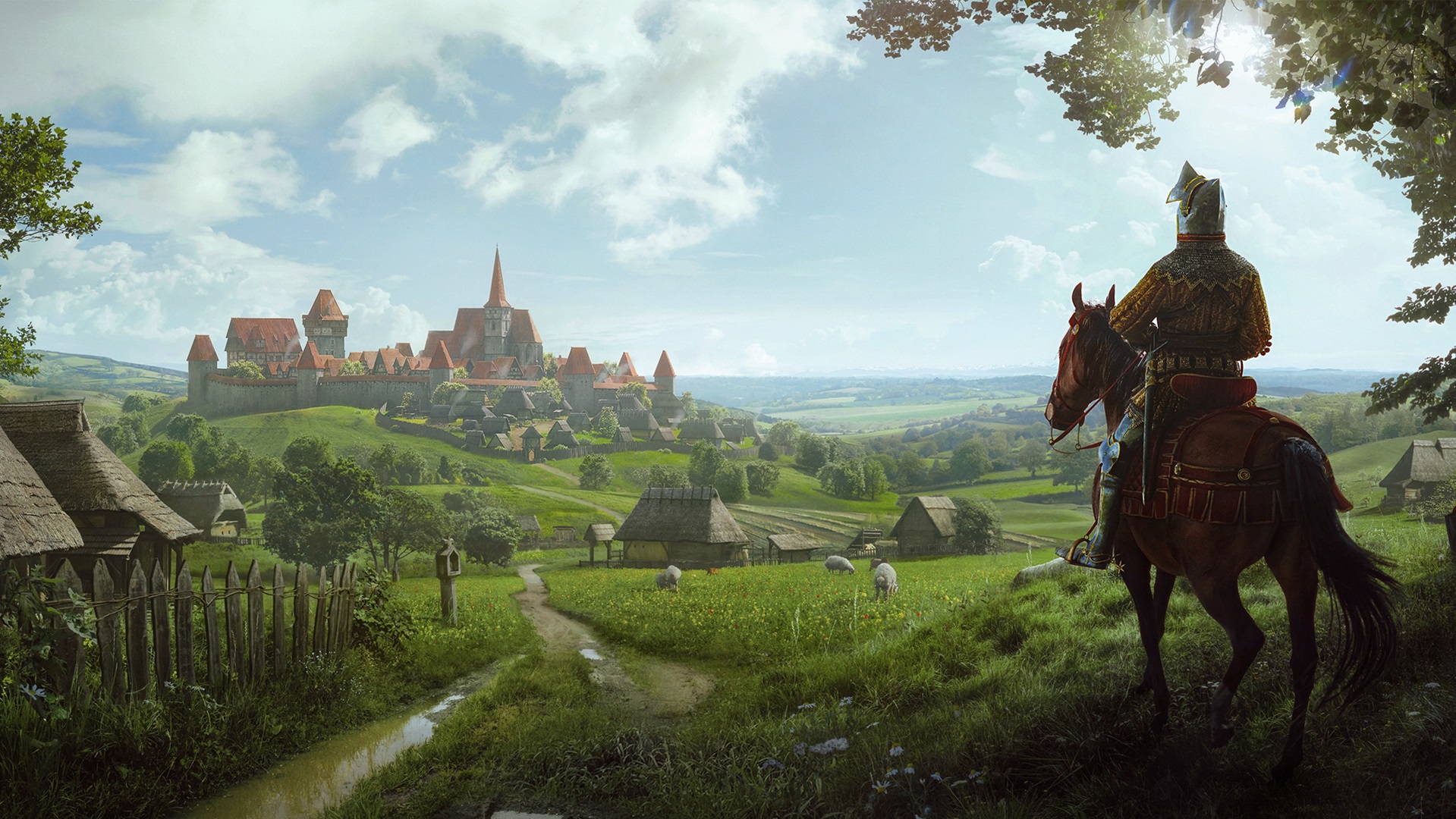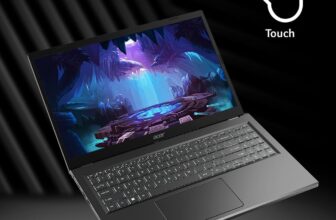

El Shaddai is an artistic endeavour in the same vein as Rez or Thatgamecompany’s Journey, taking action genre norms and weaving them into an avant-garde, visual tour de force. Anyone familiar with the ill-fated Clover Studio, a Capcom subsidiary that started out in 2004 developing for the GameCube, will likely have encountered the work of Sawaki Takeyasu; a body including Devil May Cry, Okami, and Gravity Rush 2. In 2006, Shinji Mikami and Hideki Kamiya left Clover to establish Seeds Inc., which would become PlatinumGames through a merger the following year, while Takeyasu formed the freelance studio, Crim.
El Shaddai: Ascension of the Metatron’s origins actually lie with the then head of UTV Ignition Games, Vijay Chadha. Although Ignition was a publisher based out of Hammersmith, London, Chadha was a fan of Takeyasu’s work, and, aware of his departure from Clover, pitched him an idea for an action game based on the apocryphal Book of Enoch, featuring parables on fallen angels displaced from heaven and the ‘Thousand Year Reign of the Messiah’. It’s heavy stuff, and beautifully imagined as video game material by Takeyasu’s team.

A fickle public, however, unswayed by overt artistry or unconventional themes, meant poor sales for the game on its PS3/360/PC release in 2011. Retrospectively, it’s considered heinously overlooked, and with the advent of this HD remaster, let’s hope not for a second time. El Shaddai, for all intents and purposes, feels boldly unique for a Devil May Cry-style action game. A metaphysical carnival ride of incredible sights and sounds, it ranges from the bleakly austere to the spellbindingly abstract, ever-intriguing with its constant evolution.
You play as Enoch, an immortal scribe sent from the heavens to recover seven fallen angels. The angels, spread between the floors of a holy tower, are responsible for creating Nephilim (or giants) that are endangering the world. God, aware of the impending havoc, is threatening a great flood unless Enoch can defeat the Nephilim and return the fallen angels. What this entails is a 3D combat game where, like Devil May Cry, an on-rails camera expands, trails, and frames the action while you lay into your enemies with acrobatic combo strings and dazzling pyrotechnics.

Despite the ancient text at its core and its pervasive sense of foreboding, it remains highly stylised in a way only the Japanese know how. The character, Lucifel (hello to Jason Isaacs), who acts as a narrator and consort to Enoch, looks as though he should be recruiting hostesses on the streets of Roppongi. Instead, he has a cell phone hotline to God and is seen regularly updating the big man on Enoch’s progress. He’s a bit like Al from Quantum Leap, while looking like a cast reject from No More Heroes. Enoch, too, despite being a resplendent blonde warrior of lore, wears a pair of denim jeans that are revealed once his armour is sufficiently decimated.
The combat is expectedly competent. There are no HUD displays eating into the game’s imagery and the mechanics are kept encouragingly simple. Enoch can fight bare-handed, but acquiring weaponry is where things change lanes. Pummel your opponent into a dizzied state and you can steal their weaponry with a tap of the ‘L’ button. There are three major weapons to grab should the opportunity arise: the close-range Arch, the long-range Gale, and the Veil, which offers added protection. Part of progression is understanding and experimenting with different weapon steals; there’s no one-fits-all glove, and sometimes you need to brutalise one particular enemy while battling several just to harness your weapon of choice.

Some weapons are weaker against others, too, adding a welcome layer of strategy. Attacks are governed by a single button that behaves differently whether tapped or held for a charge; whether on the ground or in the air; or at different ranges. You can block with the ‘R’ button, punish nearby opponents into a guard break, or uppercut them skyward for air juggles and Catherine-wheel-like special moves. Damage to both Enoch and his opponents is signified by a loss of armour, incrementally stripping their coverings. It’s very much the Ghouls n’ Ghosts method of visual feedback, minus the spotty boxer shorts, and recovery from near-death can be made with rapid button taps.
If there are any shortcomings, it’s probably in the combat’s simplicity and repetitive nature. Not that repetition is particularly uncommon in this type of game, but compared to titles like Castlevania: Lords of Shadow (2010) or Bayonetta (2009), there are relatively few layers, with no upgrade menus to pore through looking for moves to enhance. A hack-and-slash diehard wanting something equal to the last great offering may find it doesn’t meet their expectations in terms of nuance.
And that’s fine. El Shaddai is more about compelling the player through its concepts and programming ingenuity. Difficulty with the game’s platforming has also been highlighted as a point of frustration, but with Enoch’s ability to glide and the spotlight shadow he casts on surfaces, it’s not a critical issue. We admit to the odd eyeball roll when isometric trickery results in a fall and restart — sometimes more than once — but it’s certainly no deal-breaker.

While artistic endeavour alone may not be enough to sway everyone, El Shaddai triumphs in delivering an experience. Sometimes entering into another battle with a couple of elementary entities feels like it’s holding things back, but only because you’re always desperate to see what new tricks lie around the corner. Takeyasu’s artistic vision and the incredible effort that’s gone into the game’s construction can’t be overstated. While combat is an enjoyable patter of reflex and finger routines, the incredible journey binding everything together is more the centrepiece. Scaling the dark tower, level by level, is a spellbinding trip; its morphing esoteric landscapes part fever dream, part nightmarish biblical parable.
Takeyasu’s flourishes are matched by the game’s fluidity, allowing you to double jump, dash, and carve your way through dreamlike vistas with indistinct horizons, across blue-hued onyx pathways above vast, tribal cities. Sometimes it switches to a 2D side-on plane, having you dash over giant waves or against a backdrop of incredible stained glass paintings. This constant invention is a real spectacle, moving from nether realms and floating subspaces to giant, articulated futuristic cityscapes where Enoch is thrown into a full-blown motorcycle chase, dodging missiles, boosting along ramps, and avoiding fireballs.

Being an HD remaster, it’s actually one of the best-looking games we’ve seen on the Switch outside of Zelda: Tears of the Kingdom, and incredibly well-optimised. It doesn’t always maintain its 60fps, but the drops are fleeting at best.
Conclusion
El Shaddai feels genuinely more creative and interesting than a lot of the titles it would consider bedfellows today. It shares a place with the likes of ICO, Nier, and Panzer Dragoon in its arcane design and historically inspired symbolism. Elsewhere, it borrows from the likes of Okami and Mizuguchi’s Rez for its abstract, acid-trip beauty. It’s true that the combat can become routine, the platforming occasionally frustrate, and some of the boss encounters appear slightly samey, but it runs smoothly and assuredly across 11 visually astounding stages. El Shaddai, more than anything else, is a game of moments, and a lot of them. It’s certainly one of the most intriguing titles in the action-adventure, hack-and-slash genre, and deserves the attention this time around that it never achieved on its original release.

El Shaddai is an artistic endeavour in the same vein as Rez or Thatgamecompany’s Journey, taking action genre norms and weaving them into an avant-garde, visual tour de force. Anyone familiar with the ill-fated Clover Studio, a Capcom subsidiary that started out in 2004 developing for the GameCube, will likely have encountered the work of Sawaki Takeyasu; a body including Devil May Cry, Okami, and Gravity Rush 2. In 2006, Shinji Mikami and Hideki Kamiya left Clover to establish Seeds Inc., which would become PlatinumGames through a merger the following year, while Takeyasu formed the freelance studio, Crim.
El Shaddai: Ascension of the Metatron’s origins actually lie with the then head of UTV Ignition Games, Vijay Chadha. Although Ignition was a publisher based out of Hammersmith, London, Chadha was a fan of Takeyasu’s work, and, aware of his departure from Clover, pitched him an idea for an action game based on the apocryphal Book of Enoch, featuring parables on fallen angels displaced from heaven and the ‘Thousand Year Reign of the Messiah’. It’s heavy stuff, and beautifully imagined as video game material by Takeyasu’s team.

A fickle public, however, unswayed by overt artistry or unconventional themes, meant poor sales for the game on its PS3/360/PC release in 2011. Retrospectively, it’s considered heinously overlooked, and with the advent of this HD remaster, let’s hope not for a second time. El Shaddai, for all intents and purposes, feels boldly unique for a Devil May Cry-style action game. A metaphysical carnival ride of incredible sights and sounds, it ranges from the bleakly austere to the spellbindingly abstract, ever-intriguing with its constant evolution.
You play as Enoch, an immortal scribe sent from the heavens to recover seven fallen angels. The angels, spread between the floors of a holy tower, are responsible for creating Nephilim (or giants) that are endangering the world. God, aware of the impending havoc, is threatening a great flood unless Enoch can defeat the Nephilim and return the fallen angels. What this entails is a 3D combat game where, like Devil May Cry, an on-rails camera expands, trails, and frames the action while you lay into your enemies with acrobatic combo strings and dazzling pyrotechnics.

Despite the ancient text at its core and its pervasive sense of foreboding, it remains highly stylised in a way only the Japanese know how. The character, Lucifel (hello to Jason Isaacs), who acts as a narrator and consort to Enoch, looks as though he should be recruiting hostesses on the streets of Roppongi. Instead, he has a cell phone hotline to God and is seen regularly updating the big man on Enoch’s progress. He’s a bit like Al from Quantum Leap, while looking like a cast reject from No More Heroes. Enoch, too, despite being a resplendent blonde warrior of lore, wears a pair of denim jeans that are revealed once his armour is sufficiently decimated.
The combat is expectedly competent. There are no HUD displays eating into the game’s imagery and the mechanics are kept encouragingly simple. Enoch can fight bare-handed, but acquiring weaponry is where things change lanes. Pummel your opponent into a dizzied state and you can steal their weaponry with a tap of the ‘L’ button. There are three major weapons to grab should the opportunity arise: the close-range Arch, the long-range Gale, and the Veil, which offers added protection. Part of progression is understanding and experimenting with different weapon steals; there’s no one-fits-all glove, and sometimes you need to brutalise one particular enemy while battling several just to harness your weapon of choice.

Some weapons are weaker against others, too, adding a welcome layer of strategy. Attacks are governed by a single button that behaves differently whether tapped or held for a charge; whether on the ground or in the air; or at different ranges. You can block with the ‘R’ button, punish nearby opponents into a guard break, or uppercut them skyward for air juggles and Catherine-wheel-like special moves. Damage to both Enoch and his opponents is signified by a loss of armour, incrementally stripping their coverings. It’s very much the Ghouls n’ Ghosts method of visual feedback, minus the spotty boxer shorts, and recovery from near-death can be made with rapid button taps.
If there are any shortcomings, it’s probably in the combat’s simplicity and repetitive nature. Not that repetition is particularly uncommon in this type of game, but compared to titles like Castlevania: Lords of Shadow (2010) or Bayonetta (2009), there are relatively few layers, with no upgrade menus to pore through looking for moves to enhance. A hack-and-slash diehard wanting something equal to the last great offering may find it doesn’t meet their expectations in terms of nuance.
And that’s fine. El Shaddai is more about compelling the player through its concepts and programming ingenuity. Difficulty with the game’s platforming has also been highlighted as a point of frustration, but with Enoch’s ability to glide and the spotlight shadow he casts on surfaces, it’s not a critical issue. We admit to the odd eyeball roll when isometric trickery results in a fall and restart — sometimes more than once — but it’s certainly no deal-breaker.

While artistic endeavour alone may not be enough to sway everyone, El Shaddai triumphs in delivering an experience. Sometimes entering into another battle with a couple of elementary entities feels like it’s holding things back, but only because you’re always desperate to see what new tricks lie around the corner. Takeyasu’s artistic vision and the incredible effort that’s gone into the game’s construction can’t be overstated. While combat is an enjoyable patter of reflex and finger routines, the incredible journey binding everything together is more the centrepiece. Scaling the dark tower, level by level, is a spellbinding trip; its morphing esoteric landscapes part fever dream, part nightmarish biblical parable.
Takeyasu’s flourishes are matched by the game’s fluidity, allowing you to double jump, dash, and carve your way through dreamlike vistas with indistinct horizons, across blue-hued onyx pathways above vast, tribal cities. Sometimes it switches to a 2D side-on plane, having you dash over giant waves or against a backdrop of incredible stained glass paintings. This constant invention is a real spectacle, moving from nether realms and floating subspaces to giant, articulated futuristic cityscapes where Enoch is thrown into a full-blown motorcycle chase, dodging missiles, boosting along ramps, and avoiding fireballs.

Being an HD remaster, it’s actually one of the best-looking games we’ve seen on the Switch outside of Zelda: Tears of the Kingdom, and incredibly well-optimised. It doesn’t always maintain its 60fps, but the drops are fleeting at best.
Conclusion
El Shaddai feels genuinely more creative and interesting than a lot of the titles it would consider bedfellows today. It shares a place with the likes of ICO, Nier, and Panzer Dragoon in its arcane design and historically inspired symbolism. Elsewhere, it borrows from the likes of Okami and Mizuguchi’s Rez for its abstract, acid-trip beauty. It’s true that the combat can become routine, the platforming occasionally frustrate, and some of the boss encounters appear slightly samey, but it runs smoothly and assuredly across 11 visually astounding stages. El Shaddai, more than anything else, is a game of moments, and a lot of them. It’s certainly one of the most intriguing titles in the action-adventure, hack-and-slash genre, and deserves the attention this time around that it never achieved on its original release.






